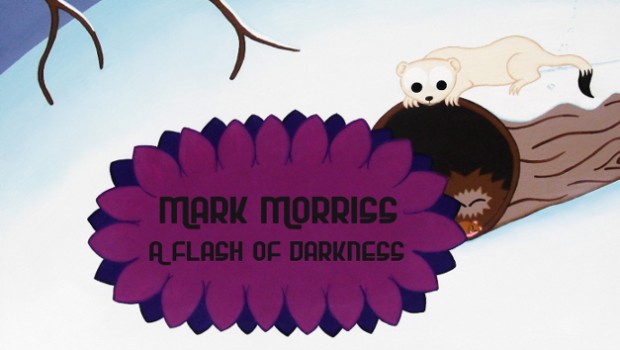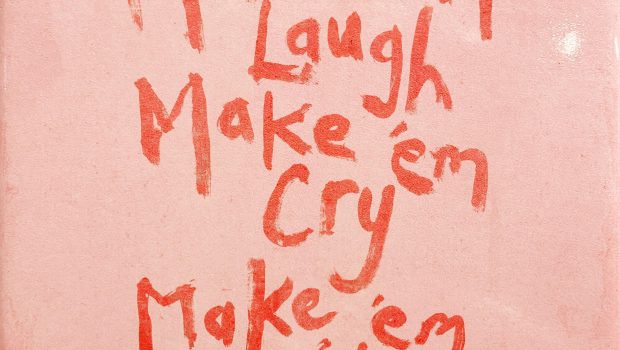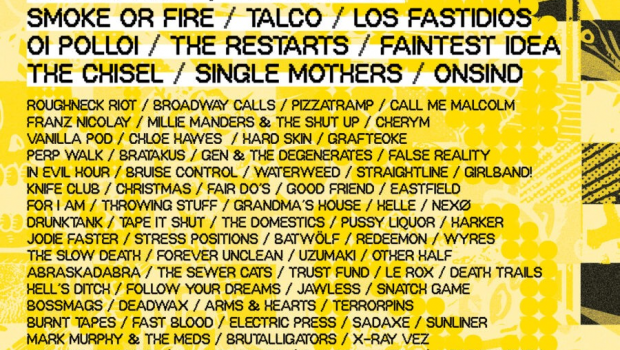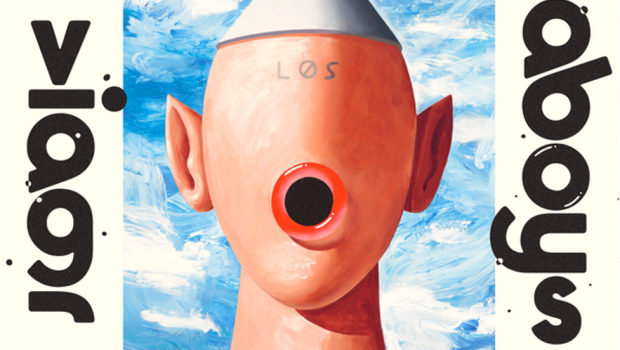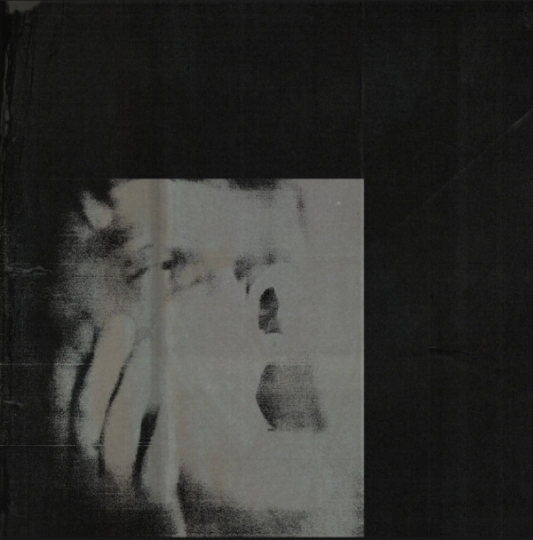 DITZ’s Never Exhale is a difficult album to categorise. I’d lean toward calling it a noise rock or post punk record, but that would undersell the sometimes unexpected range of influences that bubble up throughout the album. As a band who weren’t on my radar until very recently, I was super excited as every song showcased the furthest reaches of their musical territory.
DITZ’s Never Exhale is a difficult album to categorise. I’d lean toward calling it a noise rock or post punk record, but that would undersell the sometimes unexpected range of influences that bubble up throughout the album. As a band who weren’t on my radar until very recently, I was super excited as every song showcased the furthest reaches of their musical territory.
‘V70’ opens the record with the sound of someone getting into a car, before an ominous revving buzz begins, like an engine struggling to spurt to life. This hum rises to a fever pitch alongside the drums and guitars, building tension before the album drops into the next track. It’s an effective tone setter with some interesting textures but ultimately is just the album’s prelude.
The following ‘Taxi Man’ is a groovy cut of noise rock, with a beat that flirts with a dark funkiness and discordant guitar that punctuates the second verse. Atop this foundation are sprechgesang vocals, that sing-speak that dominated the recent UK post punk revival. I’m almost as tired of making this complaint as I am of hearing this type of vocals in new music, but it was slightly disappointing when the vocals kicked in. They’re not bad, but I feel like this band is capable of better, especially when hearing it in this context just reminds me of Gilla Band. It’s not enough to pull me away from enjoying the track though, with its earworm of a refrain that still leaves the tension intact whilst feeling rewarding. DITZ then bring in a quieter section, with leering bass and sinister, subdued vocals, which allows the groove to creep up and culminate in a massive, heavy section almost reminiscent of metal breakdowns. It’s a nod toward ideas that will show back up later.
‘Senor Sinestro’ and ‘Four’ really showcase how key the drummer is to this band, keeping these hypnotic, occasionally dancey rhythms throughout that make an indestructible foundation to build on top of. There are some other really cool ideas here too – on ‘Senor Sinestro’ a voice crack becomes a key part of the vocal delivery in a way I found really endearing, and ‘Four’ has a brilliant descending dissonant guitar line which I can’t get enough of.
‘God on a Speed Dial’ opens on a brilliant lead line, like a smoke alarm contorted into a melody. Spoken vocals rise to the point of bordering feral screams, and I find this a much more fitting vocal style for the instrumentals on Never Exhale. For my money it’s the album’s first really brilliant moment and going forward there’s more of its ilk. ‘Smells Like Something Died in Here’ walks the line between IDLES’ finest moment ‘Colossus’ and a track by industrial hip hop outfit clipping.. Atmosphere builds over long trails of bass. Drums carry the progression, signaling ghostly wails to soar overhead and bring new levels of menace with them to rain down over the listener. Patiently it builds to a pinnacle, with guitars baying at your feet, baring their teeth. It never comes on this track but gives you a clear premonition of what’s to come.
‘18 Wheeler’ exemplifies how much the filth has settled in on the album, with an infectious bassline writhing at its centre. Caustic plucks compliment the low-end grit with high end seethings. Dissonant chords ring out in bursts in a way that evokes Korn of all bands. The song serves to further the buildup of decay and anger that has been visible in the past few tracks, and whilst it ends with cathartic thrashing through moments of silence, crucially doesn’t resolve this thread of impending doom.
‘The Body as a Structure’ carries through the filth of the bass, with the guitar playing an ethereal progression that resolves on a jarring dissonant note, before adopting a plucky earworm motif. Huge riffs crash in with a nu-metal-esque riff collapsing the ceiling and validating my earlier suspicions of influence from the era. More melodic vocals emerge to build this grand bridge that dips its toes into post-rock as well as the unifying anthemic quality of tracks like IDLES’ ‘Beachland Ballroom’ before finally yanking loose that constant thread of tension by indulging in a full-blown chaotic breakdown. It’s so rewarding at this stage in the album and I adore it.
With all that steam blown off, final track ‘britney’ is forced to start more subtly. Near whispered vocals, gently treading atop a soft drum beat and a droning synth, are finally interrupted by loud, distorted chords that reminded me of the end of Nine Inch Nails’ ‘Hurt’ in how they tear through a quiet track and ring out into a void. This tear in the track’s fabric allows a hi hat laden beat to crawl through and swarm. The song goes from huge, heavy sections that wouldn’t sound out of place in an arena to Slint-esque interludes coated in thick swathes of ill intent. It’s in their heaviest moments that DITZ set themselves apart from any band you could compare them to. They deliver on the promise of Black Midi’s Schlagenheim, and especially its heaviest moments like the breakdown at the end of ‘bmbmbm’, by allowing in these influences that might be looked down upon by the more pretentious of the trenchcoat brigade that came to dominate that post punk revival a couple of years ago. It has the dark tranquility of Just Mustard, the noisiness of Gilla Band, the groove and heaviness of Korn and a way of tying its disparate fringes together in a way that doesn’t sound unnatural. It’s a really impressive feat.
Is Never Exhale a perfect record? Definitely not. Its best moments are backloaded, however much I have love for ‘Taxi Man’, ‘Senor Siniestro’ and ‘Four’, the run from ‘God on a Speed Dial’ to ‘britney’ is untouchable and would be a pretty damn invincible EP. Five songs that establish a tone and carry it through perfectly whilst acting as satisfying individual songs. It makes me so excited for whatever the band do next (hopefully change up their vocal style a little but I can look past that) because the second half of Never Exhale establishes DITZ as a band with real promise, one that can build an atmosphere befitting its title.
DITZ: Never Exhale – Out 24 January 2025 (Republic of Music / Domino Publishing)

